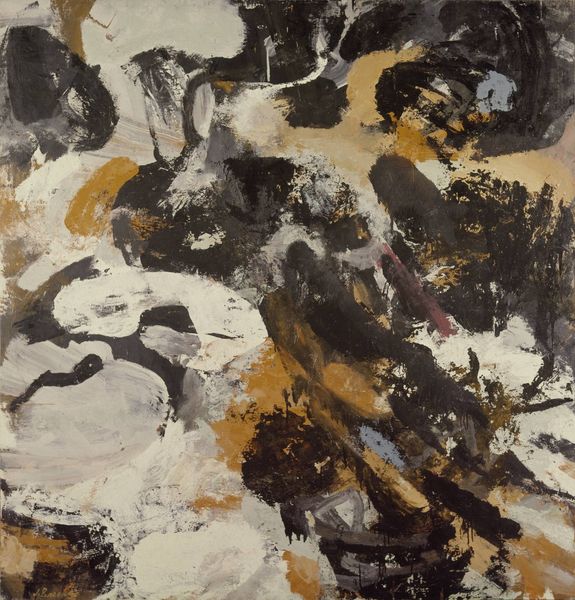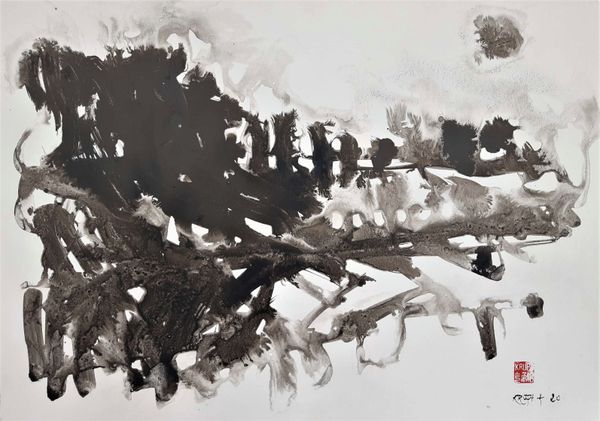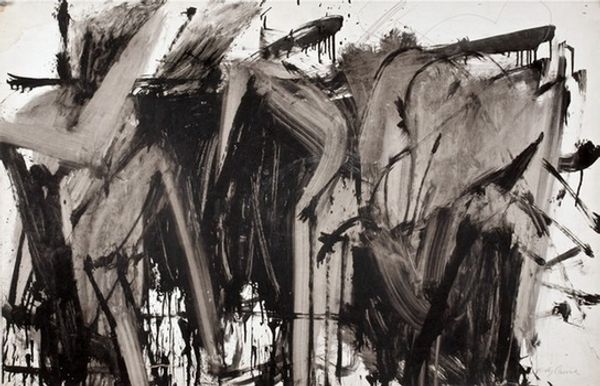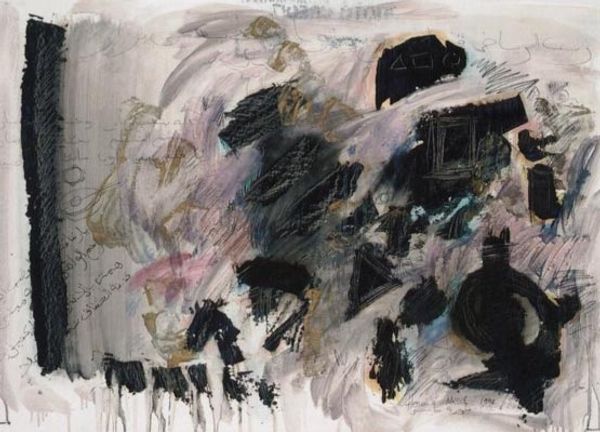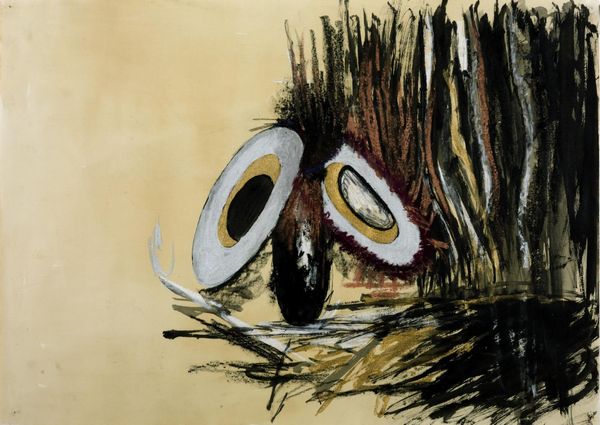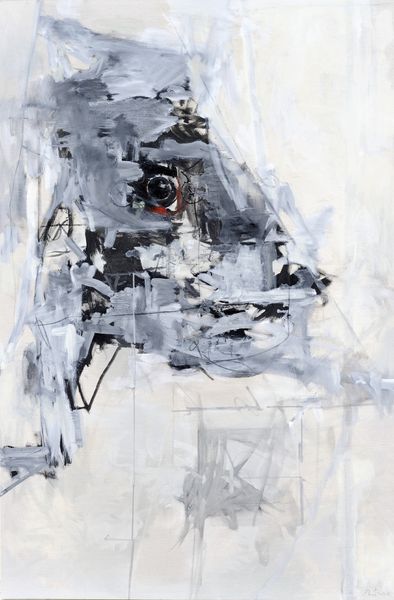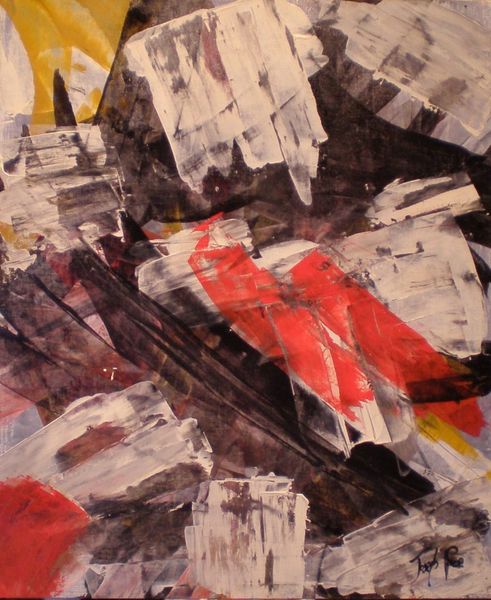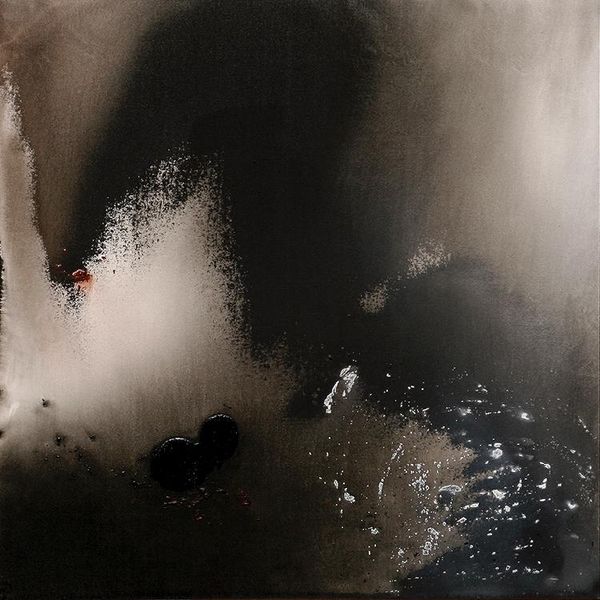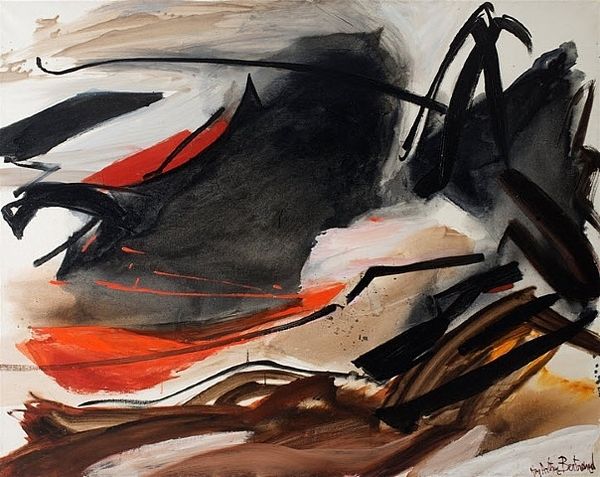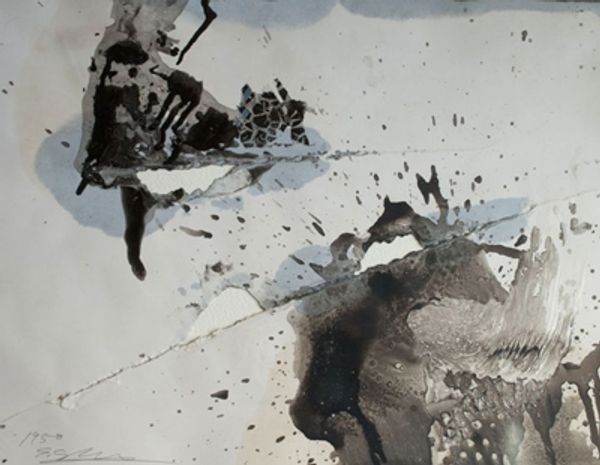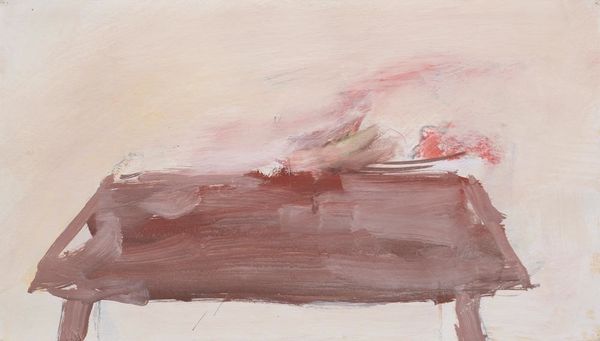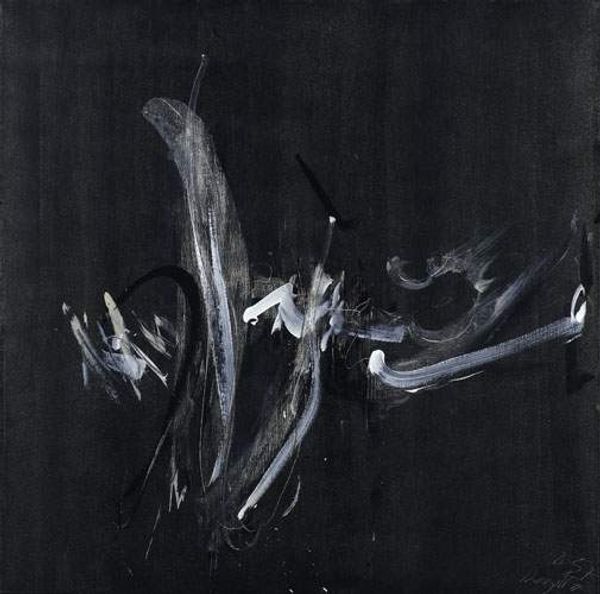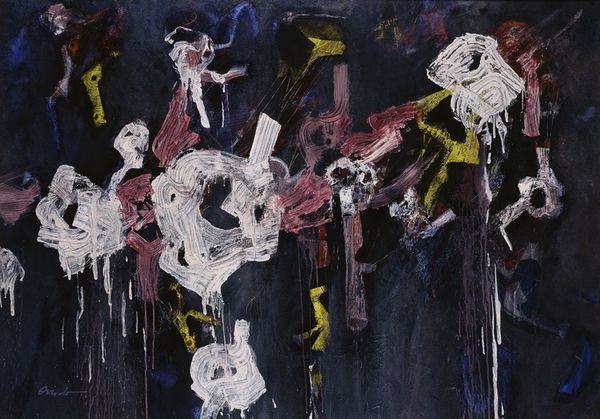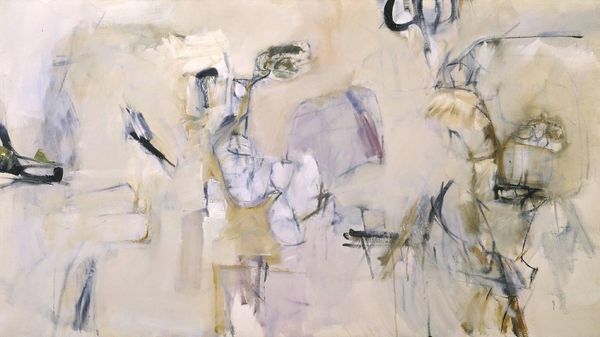
drawing, charcoal
#
abstract-expressionism
#
drawing
#
landscape
#
charcoal drawing
#
oil painting
#
abstraction
#
charcoal
#
charcoal
Copyright: Claude Georges,Fair Use
Curator: So, let's delve into this compelling piece from 1965, simply titled "Untitled" by Claude Georges. It's an intriguing exploration of form and texture, primarily executed in charcoal. Editor: My first impression is this raw energy, like a landscape torn apart and reassembled. It feels desolate yet somehow powerful, maybe even a bit foreboding. Curator: It's interesting you pick up on that. Post-war anxieties were definitely shaping artistic expression at the time, so to read this energy into the charcoal rendering is pretty on point. Georges, while working in abstraction, seems tethered to landscape traditions—the play of light and shadow definitely evokes natural forms. Think of the Hudson River School in reverse, instead of idealised nature it renders nature and landscape in decay, like environmental destruction had occurred. Editor: I see that connection, definitely. But I'm also wondering about the use of charcoal itself. It's such a primal medium, like drawing with earth and fire. Perhaps Georges is making a statement about industrial progress, how we extract and consume nature without reverence? This piece feels like a cry against erasure. Curator: The stark contrast definitely enhances the drama. Also, charcoal has strong associations with preparatory sketches in art history. Presenting charcoal as the final medium breaks down certain art-historical barriers. Consider the art market’s role—what does it mean to display charcoal in white cube gallery spaces, especially when we view the role and rise of ephemeral installations, or earth art occurring at the time. Editor: Exactly, it reframes the artistic process, doesn’t it? It’s no longer about polished perfection but about the immediacy of mark-making. The fact that this work remains "Untitled" invites us, I think, to bring our own interpretations, especially in today's world where environmental concerns are increasingly urgent. We get to decide if its critique is of industrial progress or something broader: extraction in every sense. Curator: Right, and that openness allows us to consider how its message might resonate with different audiences across time, engaging new discourses in gender or racial justice movements for instance. The museum's role is not to just preserve art but to facilitate these important, dynamic dialogues. Editor: I appreciate your reading of the social conditions as they impacted Claude George. Now it will influence how I appreciate this landscape as something more complex than at first glance, something rooted and critical. Curator: Indeed, viewing art as intrinsically tied to its cultural production, reception, and later interpretation really enriches the experience, wouldn’t you agree?
Comments
No comments
Be the first to comment and join the conversation on the ultimate creative platform.
